These classes can be held at your organization. Custom streaming can be provided upon request.
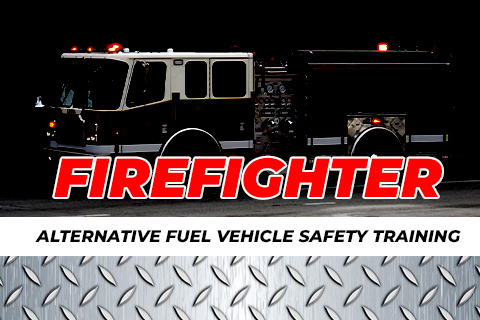
LF-001 Firefighter Alternative Fuel Vehicle Safety Training
This course prepares the firefighter for responding to incidents involving alternative fuels and alternative fuel vehicles. This class can be taught in conjunction with Law Enforcement and EMS personnel.
Subjects covered include:
- Understand the properties of the alternative fuels (propane, natural gas, ethanol, hydrogen, electricity, and biodiesel).
- Recognize the differences between alternative fuel vehicles and their conventionally powered gasoline and diesel counterparts.
- Identify the risks and hazards common to alternative fuel storage, including high-voltage and compressed fuel.
- Understand how to identify an alternative fuel vehicle from its more conventionally fueled counterpart.
- Recognized the additional standard operating procedures (SOPs) to be added to your department’s current guidelines.
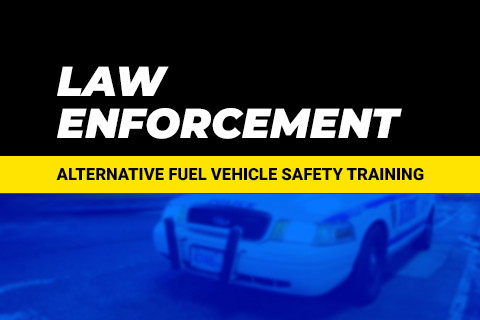
LF-002 Law Enforcement Alternative Fuel Vehicle Safety Training
This course prepares law enforcement officers for responding to incidents involving alternative fuels and alternative fuel vehicles. This class can be taught in conjunction with Firefighter and EMS personnel.
Subjects covered include:
- Understand the properties of the alternative fuels (propane, natural gas, ethanol, hydrogen, electricity, and biodiesel).
- Recognize the differences between alternative fuel vehicles and their conventionally powered gasoline and diesel counterparts.
- Identify the risks and hazards common to alternative fuel storage, including high-voltage and compressed fuel.
- Understand how to identify an alternative fuel vehicle from its more conventionally fueled counterpart.
- Recognized the additional standard operating procedures (SOPs) to be added to your department’s current guidelines.
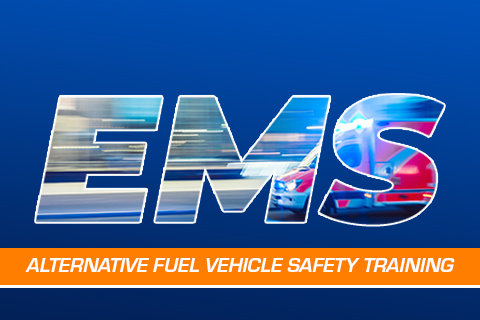
LF-003 EMS Alternative Fuel Vehicle Safety Training
This course prepares EMS for responding to incidents involving alternative fuels and alternative fuel vehicles. This class can be taught in conjunction with Firefighter and Law Enforcement personnel.
Subjects covered include:
- Understand the properties of the alternative fuels (propane, natural gas, ethanol, hydrogen, electricity, and biodiesel).
- Recognize the differences between alternative fuel vehicles and their conventionally powered gasoline and diesel counterparts.
- Identify the risks and hazards common to alternative fuel storage, including high-voltage and compressed fuel.
- Understand how to identify an alternative fuel vehicle from its more conventionally fueled counterpart.
- Recognized the additional standard operating procedures (SOPs) to be added to your department’s current guidelines.
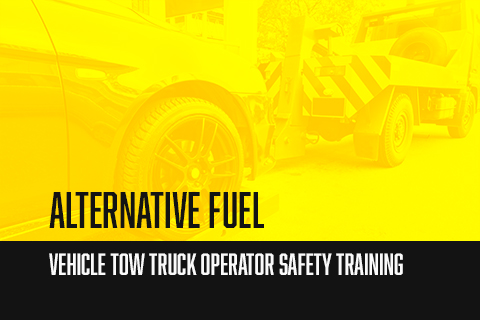
LF-004 Alternative Fuel Vehicle Tow Truck Operator Safety Training
This course prepares tow truck operators, assistants and owners on the proper methods to tow the different alternative fuel vehicles on our roads today.
Subjects covered include:
- Review towing and roadside assistance best practices.
- Understand the properties of the alternative fuels (propane, natural gas, ethanol, hydrogen, electricity, and biodiesel).
- Understand how to identify an alternative fuel vehicle from its more conventionally fueled counterpart.
- Prepare to tow alternative fuel vehicles with recommended equipment and techniques.
- Recognized the additional standard operating procedures (SOPs) to be added to your company’s current guidelines.
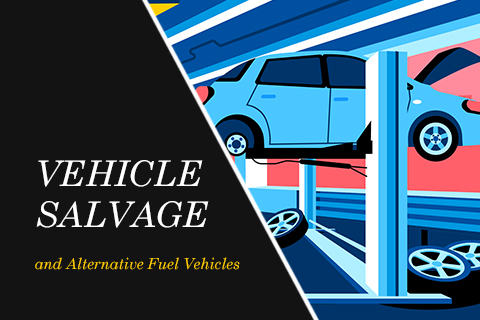
LF-005 Vehicle Salvage and Alternative Fuel Vehicles
This course prepares vehicle dismantlers on the proper procedures and personal protective equipment to use when working on and dismantling alternative fuel vehicles. personnel
Subjects covered include:
- Understand the properties of the alternative fuels (propane, natural gas, ethanol, hydrogen, electricity, and biodiesel).
- List the unique components and fuel storage systems common in alternative fuel vehicles.
- Identify the risks and hazards common to alternative fuel storage, including high-voltage and compressed fuel.
- Under how to identify an alternative fuel vehicle from its more conventionally fueled counterpart.
- Learn specialized techniques for powering down and disabling alternative fuel vehicles, removal of high dollar components, component storage, and vehicle crushing.
- Recognized the additional standard operating procedures (SOPs) to be added to your company’s current guidelines.
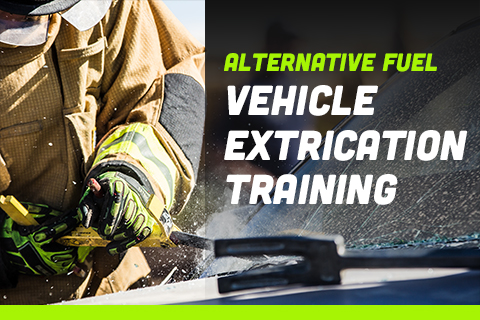
LF-006 Alternative Fuel Vehicle Extrication Training
This course teaches to the current NFPA 1001, 1006 and 1670 standards. Vehicle extrication emergencies are a leading category of response for fire and rescue personnel, and this course covers not only extrication for conventionally powered vehicles, but also extensively teaches procedures for extrication of alternative fuel vehicles, including electric, gaseous, and biofuel vehicles. Responding to these incidents us inherently dangerous because of vehicle traffic and many other hazardous conditions. Both the patient and responders' lives depend on solid, up-to-date training in incident management, basic operational procedures and knowledge of tools and techniques used to complete an efficient and effective extrication. It's critical that emergency responders are aware of hazards and how to control them at an extrication scene.
Subjects covered include:
- Training on basic and advanced extrication techniques and theories.
- Education on electric, propane autogas, compressed natural gas, biodiesel, ethanol, and hydrogen vehicles.
- Training on extrication tools and associated equipment such as rescue struts and cribbing.
- Focus on the extrication “Big 5”:
- Vehicle stabilization
- Safe vehicle glass removal
- Removing or popping vehicle doors
